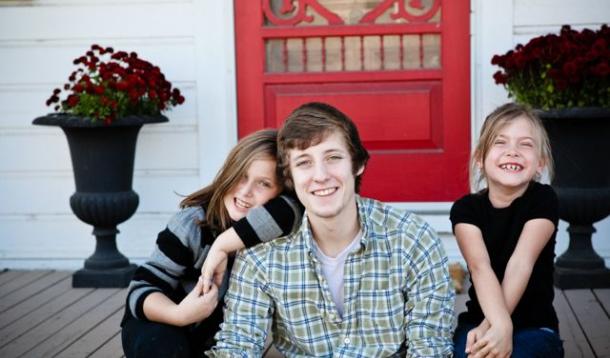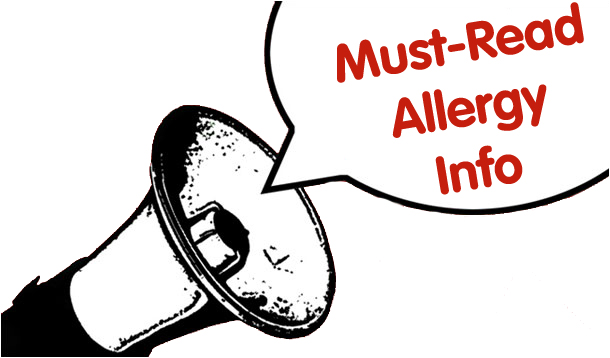
Christmas is over, and I have a small rant for retailers: Please, starting in 2014, just take my money, okay?
No, I do not want to give you my email. Please don't look hurt when I refuse.
No, I do not want to give you my postal code. How is this necessary for the transaction between us to occur?
No, I do not want another reward card in my wallet.
No, I do not want another credit card with exorbitant interest rates attached to it so I can "save" 15% today but pay 28% on the bill.
No, I do not want to donate a dollar to a charity and then be made to feel bad about it. If I gave a dollar every time I was at a store, I wouldn't have any money to donate to the causes I truly support.
No, I do not want to fill out a survey.
No, I don't want socks. Stop trying to up-sell me when I'm done shopping. Maybe your staff should have been paying attention on the floor?
What I really want to do is just pay you. The easiest thing to do in the whole shopping process has now become the most awkward. I don't like saying no every time I get to the cash. I don't enjoy feeling like I'm a total heel if I don't donate a dollar to a charity.
So, I'm done feeling bad, and from now on I'm going to stand a little taller and say "no" with my head held high. After all, I just want to give you my money; that shouldn't be so difficult.
What do you think? Are you sick of the constant barrage of questions at the cash? Do you think retailers should knock it off, or are you not bothered by it all? Chime in and let them know how you feel.

When I first met my future step son, his father told me all about Alex’s severe allergy to peanuts. So severe in fact, he was anaphylactic and constantly had to carry an EpiPen Auto-Injector with him. It was a strange and scary new world for me. Suddenly, I had to be hyper-vigilant where he was concerned. Reading food labels became a matter of life and death. Making sure that adults whose care he came under were aware of his allergy became a full-time job.
When I came into his life, Alex was six. His parents discovered his allergy after he had a severe reaction to a peanut sundae when he was a toddler. After the initial shock wore off, they immediately got to work educating him how to live with anaphylaxis. Not an easy job, but they were incredible. I remember being impressed at how careful he was to read labels, or have an adult double check them for him. How he always came over and asked us at parties or gatherings if something was safe to eat. As he grew, we remained aware and alert for peanuts, and continued to reinforce the messages taught to him when he was young.
Then a funny thing happened, this little kid started to grow into a young man (the nerve) and as he got older, we started to relax a little.
I took Alex to see his allergist when he was 14 and the doctor confirmed that Alex still had a severe allergy to peanuts. Then the doctor turned to me and said something I'll never forget. He said the most dangerous time for anaphylaxis is when they are teens. When parents start to let their guard down and teens feel most invincible is when we should in fact be most vigilant. Reflecting back on my teen years and the stupid things I did, I knew he was right.
How then do you convince the invincible that they are not?
As you can see from the list above, you're not dealing with kid stuff anymore and as such the conversation needs to change.
And don't forget the most important point of all. MOST ACCIDENTS HAPPEN WHEN THE USUAL ROUTINE IS UPSET! Parties and special events are always more risky than an ordinary day at home or at school. Inform your teen of the special danger of alcohol in reducing inhibitions and in enhancing allergic reactions.
By talking, talking, and talking some more, you will keep you and your teen alert to the dangers of anaphylaxis.
EpiPen has been a constant in Alex's life now for 18 years. Thankfully we've never had to use it, but it's always been good to know it's there if the unthinkable happens.
Postscript: As I was writing this post, Alex stopped by for a visit. He told me that he just visited the allergist (he is now 21) and again he was told he continues to be high-risk due to his age.
 Severe allergies are on the rise in Canada.
Severe allergies are on the rise in Canada.
This is proudly sponsored by EpiPen®.
EpiPen.ca
The opinions expressed in this post are the opinions of the individual author and may not reflect the opinions of Pfizer Canada, the Canadian distributor of EpiPen. Pfizer Canada reviews all material to ensure medical accuracy of statements.
EpiPen® and EpiPen® Jr (epinephrine) Auto-Injectors are indicated for the emergency treatment of anaphylactic reactions in patients who are determined to be at increased risk for anaphylaxis, including individuals with a history of anaphylactic reactions. Selection of the appropriate dosage strength is determined according to patient body weight.
EpiPen® and EpiPen® Jr Auto-Injectors are designed as emergency supportive therapy only. They are not a replacement for subsequent medical or hospital care. After administration, patients should seek medical attention immediately or go to the emergency room. For the next 48 hours, patients must stay within close proximity to a healthcare facility or where they can call 911. To ensure this product is right for you, always read and follow the label. Please consult the Consumer Information leaflet in your product package for complete dosage and administration instructions.
© 2013 Pfizer Canada Inc., Kirkland, Quebec H9J 2M5 • Toll free: 1-877-EPIPEN1 (1-877-374-7361)
EpiPen®, EpiPen® Jr are registered trademarks of Mylan Inc. licensed exclusively to its wholly-owned affiliate, Mylan Specialty, L.P.; sub-licensee, Pfizer Canada Inc., Kirkland, Quebec H9J 2M5

Books, books and yet even more books. This house is full of books. My oldest daughter is a voracious reader and I literally have a hard time keeping up with her appetite for reading. It is a luxury, that I am grateful everyday, we can afford. Odd, thinking of books as luxuries, isn't it? In many parts of the world though this is the reality with books. They are a rarity when the real issues of the day are food and water.
I know, though, the difference books can make. I know that books can lift spirits, change attitudes, break down barriers, spark imagination, and educate. I know that books can make you laugh out loud, cry like you lost a loved one, and get so angry your heart races. There is magic in those pages and sometimes I see my daughters take all this magic for granted. Like it's a forgone conclusion that these books would just be here. This frustrates me beyond words.
How do I make them understand?
As we gear up for the Christmas season I am becoming more and more concerned about the "give-mes" in this house and the lack of "give-yous." As always, I try to keep my children focused on the world at large but it's so hard this time of year. We are inundated with commercials and advertisements marketing the latest and greatest at us from every media channel. As adults, some of us have learned to tune out the noise and focus on what really matters. For children, this can be a daunting task. Still developing emotionally and intellectually, it can be very hard to wade through the non-stop barrage of "stuff" to find what really matters.
Giving.
This year, we're really focusing on life experiences for Christmas. You want singing lessons? Done. You want a stuffed animal that talks? Um, no. And we're also pulling in a new component. One item you ask for on your list must be for a child in need.

This, my friends, makes for some interesting dinner conversations.
Flipping through Plan Canada's Gifts of Hope catalogue is unlike most catalogues you find during the holidays.
"Can you imagine getting a goat for a gift?" we ask Ava our future vet. She giggles and can't stop gushing over how cute that would be. They are cute, we agree, but they also provide a family with milk for hungry little tummies and they help provide income to a family. For the child who thinks that all animals are made for cuddles, this is quite an epiphany.
"Wouldn't it be great to help a girl get her education?" we say to Morgan, our young feminist rising. She ponders this. "You mean girls don't have to go to school? That's kind of cool." she quips in typical pre-teen fashion. I've got her number. "Hmmm, true. No school for the girls but only because they should be cleaning and cooking and having babies. That's what girls do, right?" She flushes red. "No, that's not what girls do! Girls rule." As a big supporter of Because I Am a Girl, she knows girls make all the difference but an occasional nudge gets her all fired up again. Focus regained.
We've left our Gifts of Hope catalogue lying about in the kitchen and recycled the others that encourage taking and not giving. The girls have flipped through and thought about what they'll ask for and I suspect gave some real thought to what it would be like to be these children who receive these gifts.

In the end though, we've come back to the books. For us, gifting a stack of books so that young people can fall into their own little worlds is the best gift we can give as a family. They mean so much to us, and so it comes from our heart. Under the tree this year, will be a thank you from Santa telling the girls that he safely delivered a stacks of books on their behalf and that he is so, so proud of them for thinking of others. And their mom is too.
Well done little ones, well done.

This is proudly sponsored by our friends at Plan Canada.
www.plancanada.ca/giftsofhope